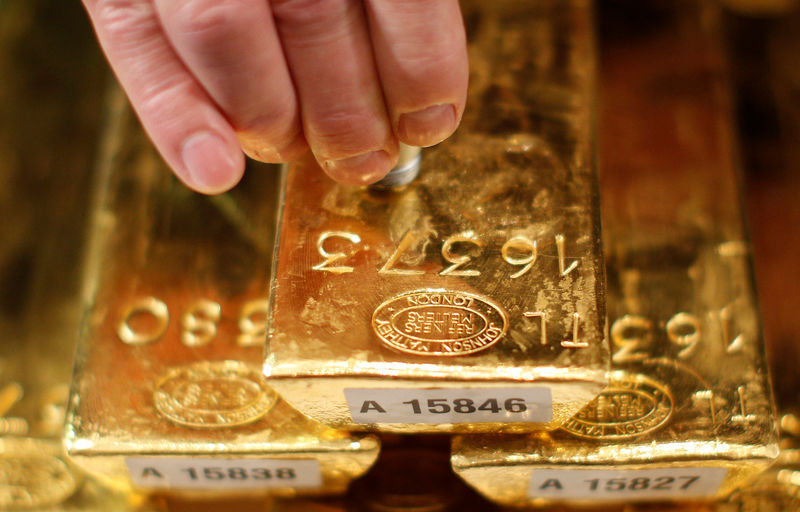Investing.com — Gold prices fell slightly in Asian trading Friday but remained near record highs as markets waited for more signals on interest rates from key U.S. inflation data due later in the day.
But bullion prices are set to rise sharply in August as a mix of safe-haven demand and expectations of rate cuts pushed the yellow metal to record highs.
fell 0.3% to $2,514.55 per ounce, while the December maturity at 01:08 ET (05:08 GMT) fell 0.5% to $2,547.80 per ounce.
Gold Poised for Strong August, PCE Data in Focus
Spot prices are expected to rise about 2.8% in August after hitting a record high of $2,531.72 an ounce earlier this month.
Tensions in the Middle East boosted demand for gold as a safe haven, as did the turmoil in risk-driven markets at the start of the month. Signs of steady buying by central banks in emerging markets also supported prices.
But the biggest support for gold has been expectations of lower US interest rates, which provide a more favorable environment for investment in the yellow metal.
The PCE price index data – the Federal Reserve’s preferred inflation gauge – will be released later on Friday and is expected to provide more clues about interest rates.
The PCE data is expected to show that inflation remained stable in July, which, combined with recent signs of resilience in the US economy, could reduce the Fed’s incentive to cut rates sharply. The dollar confirmed this idea and was on track for a weekly gain.
But traders are still pricing in a cut of at least 25 basis points in September, it emerged.
Among other precious metals, and mixed Friday, they vastly lagged gold through August.
Copper strongly hopes for stimulus measures in China
Among industrial metals, copper prices rose on Friday as reports of more stimulus measures from the largest copper importer China boosted sentiment.
The benchmark on the London Metal Exchange rose 0.5% to $9,324.50 per tonne, while the index rose 0.8% in one month to $4.2447 per pound.
According to media reports, Beijing was considering refinancing about $5.4 trillion worth of mortgages – a move that is likely to be a shot in the arm for China’s beleaguered real estate market.
The property market is a major source of Chinese copper demand, with a slowdown in the sector having raised ongoing concerns about slowing Chinese demand for the red metal.


